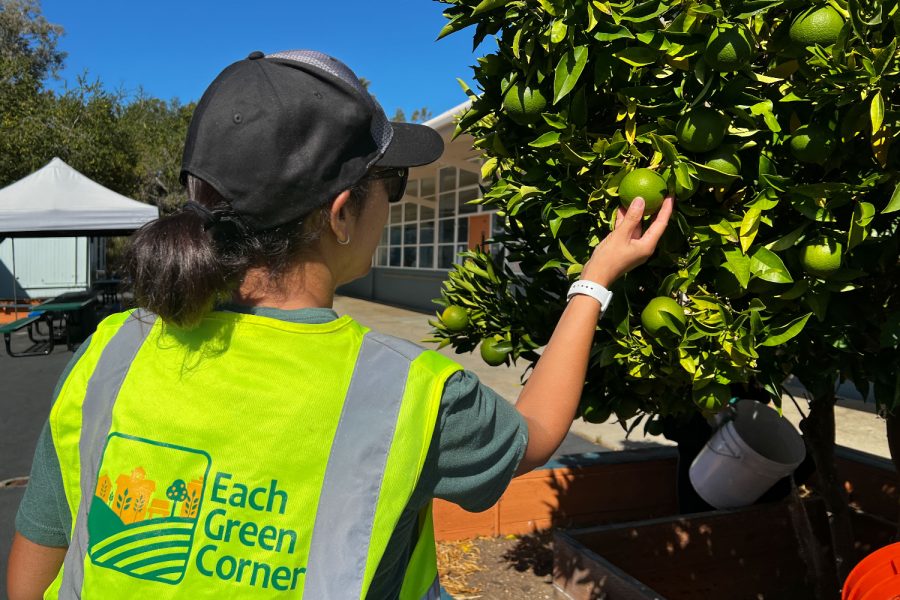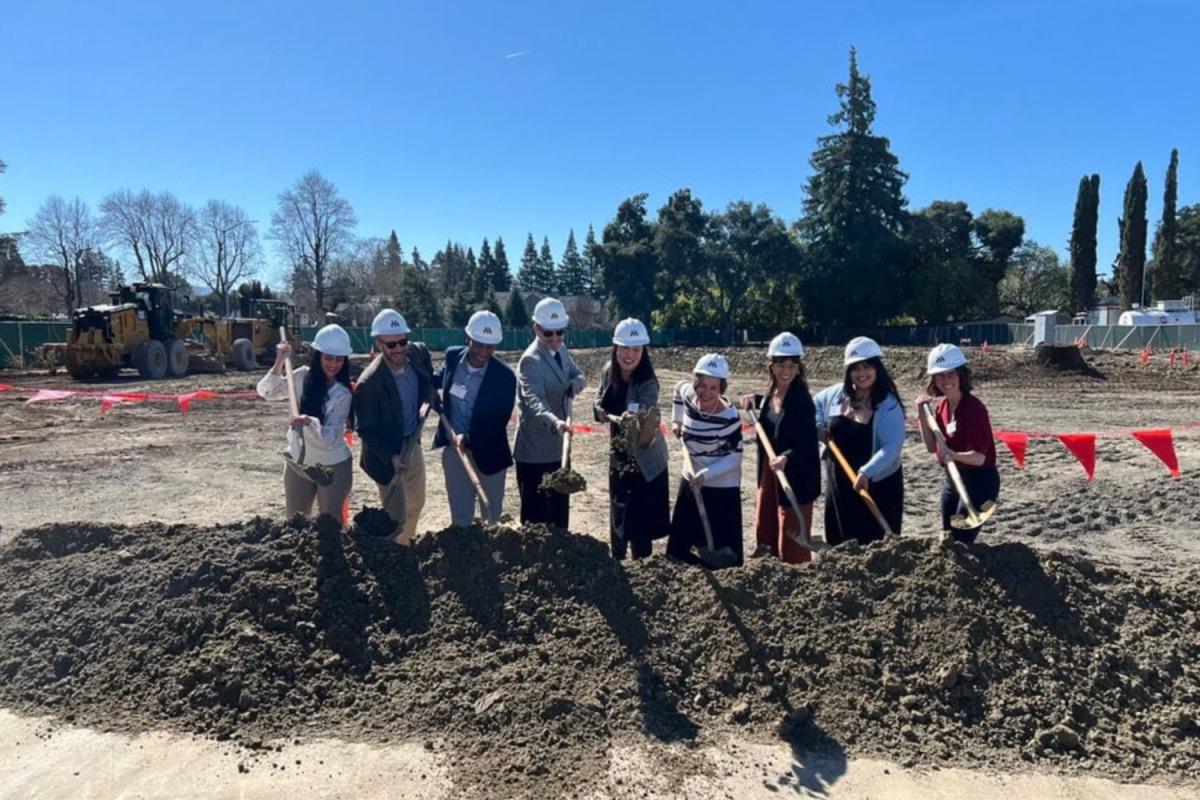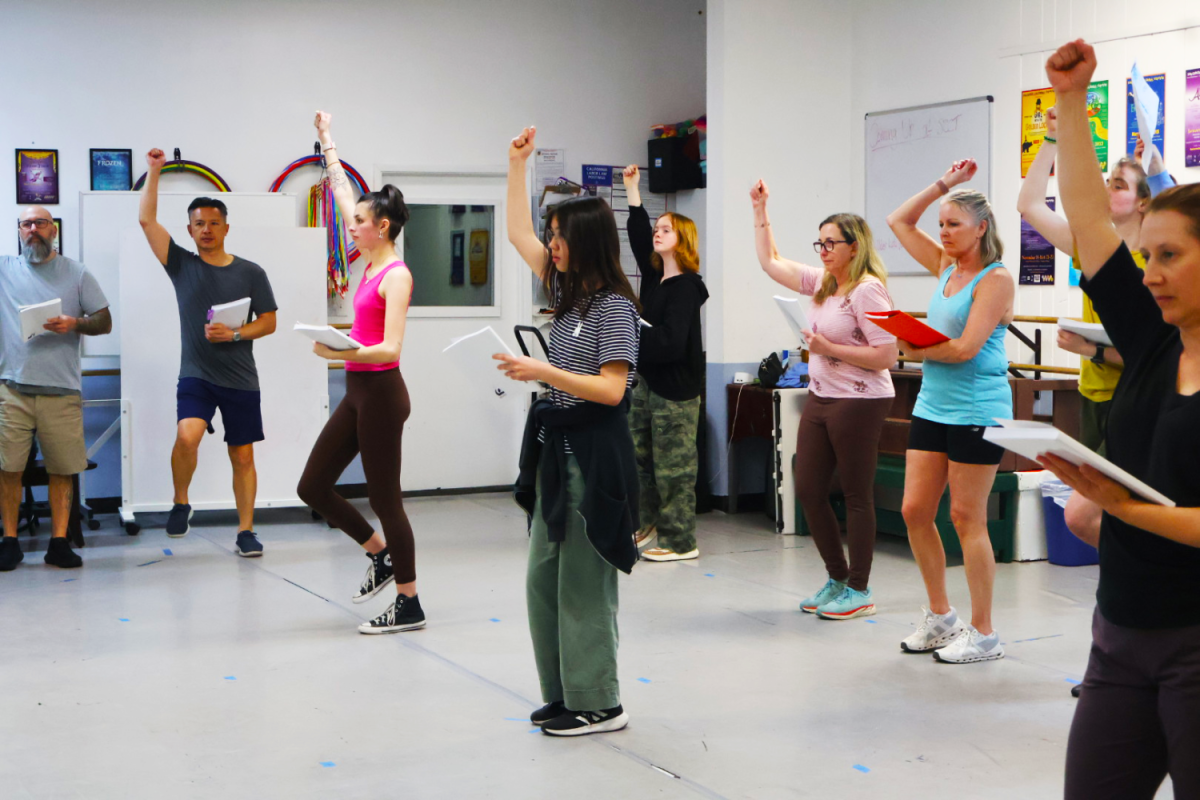A local non-profit organization, Each Green Corner, educates the community on hunger through gardening and volunteer work.
Founded in 2018, Each Green Corner brings vibrance and conjoined purpose to the community, combining education with volunteer opportunities to bring more awareness to food insecurity.
Since the organization’s founding, Each Green Corner has been almost entirely volunteer-based. Only having a handful of full-time employees, the organization utilizes trained lead volunteers to run their sites in local backyards, school gardens, and community centers. Through their local sites, the organization aims to donate the entirety of its yield to local food banks to feed hungry communities in San Mateo County.
These spaces were previously left barren and often overlooked by passersby. With the addition of planter boxes, signage, and outdoor learning spaces, the organization hopes to engage the community more. In addition, they provide a pleasing contrast to school environments to make learning more interactive for students.
“We’ve created outdoor learning spaces and planter boxes in underutilized areas so that the children can come down and see what’s growing, have a taste, and have a lesson with the teacher,” said Sonya Rowen, an Each Green Corner lead volunteer.
Rather than planting crops at a whim, Each Green Corner volunteers and employees choose their plants methodically. They do this not only to maximize yield but also to provide new, more varied sources of nutrition to appeal to different cultures in the area, especially those that cannot easily access their preferred ingredients.
“One of them that we’ve been bringing in is Calabash squash, which has been a big hit, and we’ve been growing huge ones that at Arundel Elementary School. So trying to bring a bit of diversity to the food bank and trying to fill that gap of need,” Rowen said.
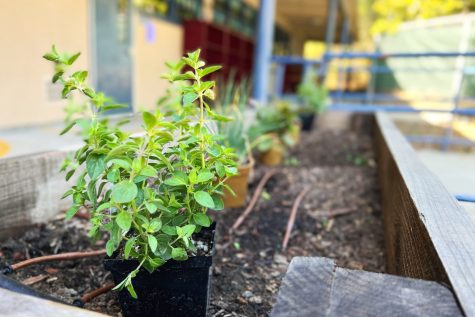
While one of their main goals is to solve food insecurity in the Bay Area, the organization also tries to educate people about adapting to the changing climate and how to help the environment in their backyards.
“One of our mission areas is to promote sustainable agriculture. We know food production is hugely important, but so is environmental sustainability. So we look to help educate the community and give them opportunities for some hands-on learning and sustainable agricultural techniques to promote environmental sustainability through our gardens,” said Sandie Nierenberg, the founder and CEO of Each Green Corner.
Nierenberg and her team carefully plan how to implement low water drip irrigation and native plants into their sites without being intrusive to the buildings around them. Additionally, through varying their usage of smaller herbs, plants, and trees, she hopes to create an environment where each organism works together to grow sustainably.
Each Green Corner volunteers are given many opportunities to help cultivate the gardens and outdoor learning spaces. Through their experiences, encouragement from programs, and articles on their website, Nierenberg hopes that volunteers will be inspired by their experiences to take what they have learned on-site and spread it to their communities.
Through their 11 active gardens in schools and contributions by community members, Each Green Corner has donated over 6,000 pounds of fresh produce to food banks, such as Second Harvest Food Bank and Samaritan House, to feed communities across San Mateo County.
“We’re trying to bring some more fresh produce to the food banks because they tend to get a lot of canned goods and other non-perishable foods,” Rowen said.
However, despite their efforts, Each Green Corner lacks the staffing to manage all their sites independently. To fill the gap, they partnered with other organizations’ volunteers to help maintain their sites. These partnerships allow Each Green Corner to spread its message further across the larger Bay Area community and gather more supporters and volunteers. The continued outreach and partnerships proved vital for the upkeep of the campus sites, as long-term volunteers no longer have time to devote to the sites with the resurgence of in-person work.
Since the height of the pandemic, Each Green Corner has partnered with other volunteer organizations such as the National Charity League, Youth Men’s Service League, Girl Scouts of America, Scouts BSA, and 4-H. These organizations either work in tandem on the same site or conduct an exclusive volunteer day in a different location.
Allowing other organizations to step in and help further promotes Each Green Corner’s message to the community. Children as young as five can make a difference and realize the importance of being sustainable and giving back to those in need.
Freshman Mateo Golomb and his mother, Julia, are both Youth Men’s Service League members and have volunteered for Each Green Corner for two years. Not only have they benefited from learning valuable skills and gaining volunteer experience, but they have started thinking more consciously about their past and future choices.
“I remember as a kid I saw some other kids pull plants out, pick the apples and like throw them around or kick them around during recess. Now I have seen the effort being put into planting this stuff and harvesting it. So it makes you more aware of your actions,” Mateo Golomb said.
By encouraging urban agriculture, Each Green Corner hopes more people start thinking about growing their food, decreasing their dependency on supermarkets, and becoming more conscious about the future of food sources, the agricultural industry, as well as world hunger.
“It makes you think about how we’ve been taking our food sources for granted. We don’t get food from food banks because we go to the store. Doing this volunteer work makes me think about the importance of growing food for yourself and the value it has for the future,” Julia Golomb said.
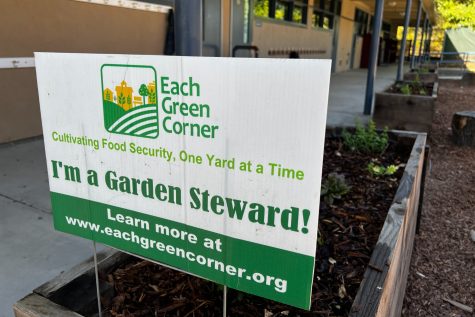
Each Green Corner remains grateful for the supporters and volunteers they have gathered. Additionally, they have begun expanding their horizons and reaching out to recruit full-time employees to manage more sites. More employees allow the organization to operate on more sites, increasing yield and impact. Each Green Corner hopes to improve its processes for training volunteers and deepen its partnerships with other local non-profit organizations to increase efficiency exponentially. Until then, the organization continues producing what it can, continually encouraging people to register and bring their specific skills to the table to continue working together to feed those in need and create better habits for the community.
“I’m very passionate about young people eating healthy food, and I really believe that if you start exposing children at a young age and having them try new vegetables and see how they grow. I feel like it might be a higher probability that they’ll eat them as an adult, and I believe that the more fruits and vegetables you eat, the healthier you are,” Rowen said. “When I bring the food to the food bank, it’s very satisfying to be able to drop it off there and know that it’s going to be given out to the community.”


